Anal-rectal conditions are a frequent part of general practice, yet many GPs feel less confident...
.jpg?height=200&name=HCE%20HubSpot%20blog%20images%20600x350%20(50).jpg)
Elevate your knowledge on the management of sexual and reproductive health conditions, especially in men.
.webp?width=500&height=400&name=PDSRH%20(and%20ACMEN).webp)
Gain advanced knowledge in the screening, diagnosis and treatment of sexual and reproductive health concerns seen in your male patients, with a focus on real clinical cases.
- Provide high-demand services for your male patients in the management of penile and prostate conditions; reproduction checks; prostate, testicular, and male breast cancers; STIs; androgen deficiency; male sexual dysfunction; and more.
- This course is for medical doctors, International Medical Graduates, registered nurses and degree-qualified health professionals.
- CPD-accredited and university-reviewed.
- Provide timely detection of prostate and testicular cancers when they are in more treatable stages.
- Promptly address penile conditions, reproduction concerns, and male breast cancer to improve patient outcomes.
- Acquire expertise in sexually transmitted infections to reduce STI rates among men and promote public health.
- Gain in-depth understanding of androgen deficiency and manage hormone-related health issues in male patients.
Looking for focused, practical training in a particular sexual health procedure? You may also be interested in the Advanced Workshop of Non-Scalpel Vasectomy or the Advanced Workshop of Intrauterine Systems.
This module focuses on prostate conditions and prostate checks. The role of the prostate is outlined and what may happen when it is not functioning normally including symptoms, underlying problems and other common features. It covers benign prostatic enlargement and associated urinary incontinence in men. Conditions that are best referred to a urologist are covered including what treatment options may be considered by the urologist. This is helpful information for the treating medical practitioner to know for continuing patient care. The module includes guides to conducting an initial assessment for various prostate conditions. Unit two content includes planning a prostate check by digital palpation, what to look for and how to interpret the pathology results. Charts, graphs, studies and diagrams assist with determining the appropriate management.
This men’s health module focuses on prostate cancer. Topics include symptoms for prostate cancer, diagnosis tools including PSA and digital examination, when to refer and what information to include when referring. Understanding the function and levels of PSA testing is a feature of unit one in addition to outlining prevention studies and men at higher risk. Management of localised prostate cancer including surveillance versus surgery is discussed. Unit two includes information and studies on radiation, neoadjuvant and adjuvant RT therapies, medications, post treatment surveillance and biochemical recurrence after treatment. Unit three discusses metastatic prostate cancer and androgen deprivation therapy, androgen resistance and treatment options. Rare subtypes are covered in addition to bone health and the effects of treatment on the skeleton.
This module focuses on the steps in examining the male external genital organs to diagnose and manage benign and pre-malignant penile lesions. It then moves into diagnosing and managing penile cancer. Images illustrate how these conditions may appear in the clinical setting. Content then explains Peyronie’s disease and outlines the phases, signs and symptoms, diagnosis and management options for this condition. Male infertility is the final unit in this course and describes the causes and how to prepare for diagnosis including history, examination and investigation. The module concludes with outlining the management options for male infertility.
This module focuses on diagnosing and managing testicular cancer and then moves into male breast cancer. Unit one on testicular cancer details how to complete an examination, what to look for and how to assess a scrotal mass. Prognosis pathology, fertility and metastatic disease symptoms are discussed including longer term effects. Unit two focuses on male breast cancer and outlines the steps for examination including the lymph nodes and what to look for. Possible symptoms are described and causes discussed. Diagnostic tests and treatment options are outlined. The unit concludes with information on genetic testing, survival rates and recurrent breast cancer management.
This module focuses on sexually transmitted infections (STIs) for men commencing with symptoms, screening, diagnosis and management of these infections in men. Infections include herpes simplex (primary and recurrent), human papillomavirus, epidermodysplasia verruciformis, molluscum contagiosum, syphilis, gonorrhoea, chlamydia, chancroid, granuloma inguinale (donovanosis) and HIV. It incorporates the symptoms, diagnosis, treatment and prevention options for STIs. First and second line treatment therapies and complications of some STIs are mentioned. Pathology images of different STIs provide references for the clinical setting. HIV, the connection with AIDS, symptoms and how it affects the body and skin, including investigation options, management and prevention strategies (PrEP) are discussed.
This module focuses on the screening, diagnosis and management of androgen deficiency. Content includes management strategies for patients with this condition and determining whether to refer to an expert. It explains the hypothalamic-pituitary-testicular axis, adrenal androgens and testosterone action. Androgen deficiency is described as well as the classification and causes of male hypogonadism. The diagnostic approach including signs and symptoms of androgen deficiency are supported by diagrams and clinical images. Functional and late onset hypogonadism management options are outlined including lifestyle measures and the benefits and risks of pharmacology.
This module describes how to distinguish between the types of erectile and ejaculation dysfunctions and how to diagnose and manage these conditions. It also suggests techniques to encourage discussion about sensitive topics such as sexual problems and considers barriers and society norms. The relationship between erectile function / dysfunction and metabolic and vascular health is explored. Tools to assist with diagnosis and clinical management are provided. The content includes what to look for when making a physical evaluation and possible causes of erectile dysfunction. Penile erection aids including injections, oral medications, vacuum devices, prostheses and shockwave therapy are listed including options, contraindications and possible side effects. The third unit focuses on ejaculation physiology and disorders and explores the psychological contributors and treatment options for premature ejaculation.
Part 1: This module focuses on the male genital anatomy and how these organs work together. Clinical presentations include benign swellings, cancer, pain and impaired vascular supply. Unit one focuses on the urethra including constrictions, obstructions, micturition, incontinence and visceral pain. Unit two focuses on the prostate gland and explains the zones and glands, benign hypertrophy and prostate cancer, hazards of prostatectomy and referred pain. Unit three is about the penis, its anatomy, the prepuce issues, circumcision and Peyronie’s disease. Unit four explains erectile tissue and mechanism, erectile dysfunction including priapism and end artery considerations. This includes venous drainage, nerves, lymph vessels and erectile dysfunction. Unit five covers the ejaculatory pathway and clinical problems including deferent duct, seminal vessels and the ejaculation function. The anatomy of each organ is examined in detail to enhance the understanding of clinical problems and symptoms to assist with diagnosis.
Part 2: This men’s health module focuses on the anatomy of the testes, scrotum and inguinal region. Content includes clinical problems of benign swellings, cancer, pain and impaired supply to male anatomy. Anatomical images of each area are a feature to reinforce learning. The module describes the anatomy of the testes and possible clinical problems and moves to the scrotum anatomy and associated clinical problems including lymph spread from scrotum to penis, hydrocoele and varicocele. The spermatic cord and possible clinical problems are outlined including vasectomy information and potential hazards. Content covers abdominal apertures, inguinal and femoral rings, inguinal canal and inguinal triangle, and looks at patent processus vaginalis (and hernia risk). Various hernias including abdominal hernias, groin and scrotal swellings, strangulated hernias and referred pain are outlined.
As the pinnacle of sexual health training at HealthCert Education, the Professional Diploma of Sexual & Reproductive Health goes beyond traditional coursework to deliver a truly immersive, practice-enhancing experience. In addition to course activities, a standout feature of this program is the clinical audit, where participants submit and analyse their own real-world cases — a powerful opportunity to directly apply your learning. This hands-on component, combined with an in-depth literature review of journal articles, ensures participants leave with both academic rigour and practical excellence.
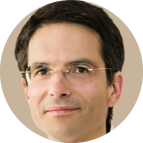
Professor Mathis Grossmann is a physician-scientist trained in both basic biology and clinical endocrinology. He is Professor of Medicine at the Department of Medicine, University of Melbourne, Austin Health, Australia. As a Consultant Endocrinologist at Austin Health, he runs Endocrine Men’s Health and Endocrine Breast Cancer Clinics.
Prof Grossmann graduated with an MD from Heidelberg University Medical School and did his internship in Munich, Germany. He then spent four years in basic research at the National Institutes of Health, USA, and obtained a PhD at the Walter and Eliza Hall Institute in Melbourne, followed by clinical training leading to FRACP. He joined the University of Melbourne at Austin Health in 2006.
His research focuses on the roles of reproductive hormones in health and disease. His group conducts observational and interventional trials in men with 1) low testosterone and chronic disease, 2) hypogonadism, 3) prostate cancer receiving androgen deprivation therapy, and 4) women with breast cancer receiving aromatase inhibition to understand how reproductive hormones regulate musculoskeletal health and glucose homeostasis, both at the clinical and the molecular level.
He has >150 peer reviewed publications and book chapters with more than 7,000 citations and a H-index of 46.
Editorial board memberships include the Journal of Clinical Endocrinology and Metabolism, Journal of the Endocrine Society, Clinical Endocrinology (Oxford), Current Opinion in Endocrine and Metabolic Research, and he is Associate Editor of the Asian Journal of Andrology.
Committee memberships include the US Endocrine Society Endocrine Self-Assessment Program (ESAP) and the Endocrine Society of Australia Council.
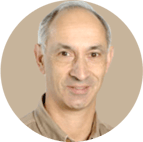
Clinical Academic Lead (Back to Base Days) Melbourne Clinical School, The University of Notre Dame
Honorary Principal Fellow Department of Anatomy & Neuroscience, The University of Melbourne
Associate Professor Norman Eizenberg has taught anatomy to medical students (at Melbourne and Monash Universities) and surgical trainees for more than 40 years. His main areas of research and scholarship are in medical education (including student learning of anatomy) and in anatomical variations (including their surgical implications). He was awarded an Honorary Fellowship Degree (in 2016) by the Royal Australasian College of Surgeons in recognition of “significant work in anatomy and of contributions to the College” and is currently Anatomy Specialty Editor for the ANZ Journal of Surgery.
A/Prof Eizenberg’s biggest role was project leader of the recently completed ANATOMEDIA Online which is a comprehensive, interactive learning platform exploring anatomy from multiple perspectives. So far, ANATOMEDIA has received four national or international awards, including the Australian Publishers Association "Best teaching & learning package in tertiary education" (in 2008).
Meanwhile, he managed to keep his hand in clinical practice after-hours as a GP and received Life Membership “for 30 years extraordinary service as a volunteer doctor at matches” by AJAX Amateur Football Club. He was also fortunate to be a Victorian Australian of the Year Finalist (in 2014) for “outstanding contribution: anatomist, doctor and educationalist”.
Outside interests besides organised sport include nature walks and contemporary music. A/Prof Eizenberg is a bit of a film buff and reads books on biography or history (which like anatomy and unlike him, never become outdated).
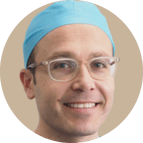
Associate Professor Darren Katz is a urological surgeon who serves as Medical Director of Men’s Health Melbourne. He is a very approachable urologist who understands the importance of providing patients with the highest standards of multi-disciplinary care. His aim is to deliver prompt, ready-access to all forms of urological management – either elective or emergency - and is available 24/7 to GPs and patients.
A/Prof Katz is the current Leader of the Andrology Special Advisory Group for the Urological Society of Australia and New Zealand. He graduated from Melbourne University Medical School in 2001 and completed his urological training with the Royal Australasian College of Surgeons. He has spent two years at world-leading hospitals - Memorial Sloan-Kettering Cancer Center and Weill-Cornell Medical Centre - in New York completing sub-speciality urological fellowships in andrology, urological prosthetics, male voiding dysfunction, incontinence, and male infertility.
A/Prof Katz is the director of the only Australian Prosthetic and Micro-surgical Fellowship which trains overseas urologists in world-leading procedures and operations. A/Prof Katz has trained urologists from USA, Canada, Israel, and England. These urologists spend one year with A/Prof Katz and his colleagues learning about the latest treatments and operations in his subspeciality field.
A/Prof Katz is heavily involved with research and academics and has been awarded both national and international grants and scholarships. He has been an invited faculty member for numerous urological workshops to teach other urologists and training urologists about the latest surgical techniques. He often presents at major international conferences. He is the author of multiple peer-reviewed journal articles and serves as a reviewer for the Journal of Urology, British Journal of Urology International, Andrology, Asian Journal of Urology, Journal of Sexual Medicine, The Asian Journal of Andrology, and the Journal of Andrology and Gynaecology: Current Research. He is involved with several clinical trials and provides the most up-to-date, evidence-based treatments for his patients.
A/Prof Katz is a member of the Urological Society of Australia and New Zealand, The Fertility Society of Australia, The American Urological Association, The European Association of Urology, and The Sexual Medicine Society of North America.
.png?width=143&height=143&name=Divyanshu%20Dua%20(1).png)
Dr Divyanshu Dua has worked as a Consultant Medical Oncologist at the Canberra Region Cancer Services since July 2016. He previously worked as a Staff Specialist in Medical Oncology in rural Victoria.
Dr Dua’s experience and training in medicine and oncology spans across three continents including Asia, Europe, and Australia. He specialises in lung cancers, thoracic malignancies, and genitourinary malignancies. He has a special interest in cancer in geriatric patients and a keen interest in medical services development and hospital management.
After doing most of his physician training in Adelaide, Dr Dua went on to do a clinical fellowship at the Guys Hospital in London in drug development, early phase clinical trials, and thoracic malignancies.
In his spare time, Dr Dua is a sports fan and enjoys watching and playing cricket.

Dr Michael Lowy is a men’s health physician with a special interest in male sexual dysfunction, relationship counselling and the general health issues of men. Dr Lowy began his medical career in general practice, later becoming a sexual health physician (FAChSHM) and obtained a Master of Psychological Medicine and became a Fellow of the European Committee of Sexual Medicine.
Dr Lowy currently works at The Male Clinic in Woolloomooloo and at Executive Health Solutions at St Vincent’s Clinic. Dr Lowy is a lecturer in Men’s Health at the University of NSW, Notre Dame University, University of Sydney and Family Planning NSW and is a clinical tutor of UNSW medical students. He is a life member of ASSERT NSW and a founding member of Society of Australian Sexologists NSW branch.
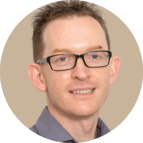

Dr Henry Yao is a urological surgeon with a special interest in uro-oncology, minimally invasive surgery (robotic and laparoscopic surgery), and reconstructive urology. He completed his undergraduate medical degree at The University of Melbourne with first class honours. Dr Yao completed his urology training in Melbourne and is a fellow of the Royal Australasian College of Surgeons.
Dr Yao completed a year of training at Western Health as the Advanced Laparoscopic and General Urology Fellow. He has subsequently completed further fellowship training in Robotic Surgery and Uro-oncology at one of the largest hospitals in the UK, where he worked in a high-volume cancer expert referral centre. Dr Yao also has a focused expertise in reconstructive urology and has published work in this area.
Dr Yao maintains a strong interest in medical research and has published 20 peer-reviewed journal articles to date. He is actively involved in the supervision of students completing research degrees. His main research interest is in the area of cancer survivorship and improving the quality of life for cancer patients.
Dr Yao always strives to provide compassionate and wholistic care for his patients. He provides care in all areas of general urology, with a focused expertise in uro-oncology and reconstructive urology. He is also fluent in Mandarin.
$1595
Bundle two courses and save 5%, or three courses and save 10% upon enrolment.
Talk to us about deferred payment options, registrar scholarships and special rates.
*For Australian residents only: Online course prices are shown exclusive of GST. If you are GST-registered, please enter a valid ABN at checkout to ensure GST is not applied. Otherwise, 10% GST will be added at checkout. View our FAQ for more information.
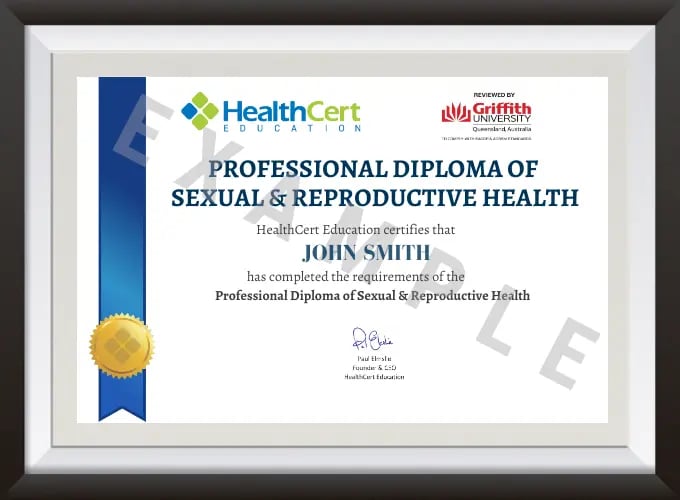

HealthCert courses have become the standard by which you gauge all others.
Dr K. Abolarinwa
Good courses with excellent speakers. I particularly enjoyed the case study scenarios which helped to integrate the knowledge gained.
Dr A. Tucker
This is the pathway to improve your confidence and evolve into the GP you aspire to be.
Dr S. Shinwari
| RACGP Activity Number | ACRRM Activity Number | Activity Title | Education Hours | Performance Hours | Outcome Hours | ||
|---|---|---|---|---|---|---|---|
| 477143 | 38451 | Male anatomy - Clinical problems Part 1 | 477143 | 38451 | 5 | 6 | 0 |
| 479888 | 38484 | Male Anatomy and Clinical Problems 2 | 479888 | 38484 | 5 | 6 | 0 |
| 477120 | 38429 | Sexually Transmitted Infections in Men | 477120 | 38429 | 4 | 6 | 0 |
| 477057 | 38425 | Prostate conditions | 477057 | 38425 | 4 | 6 | 0 |
| 477117 | 38427 | Prostate cancer | 477117 | 38427 | 3.5 | 6 | 0 |
| 479849 | 38463 | Testicular Cancer and Male Breast Cancer | 479849 | 38463 | 3.5 | 6 | 0 |
| 479840 | 38462 | Penile conditions & Male reproduction check | 479840 | 38462 | 4 | 6 | 0 |
| 477133 | 38448 | Male sexual dysfunction | 477133 | 38448 | 4 | 6 | 0 |
| 479868 | 38481 | Androgen deficiency | 479868 | 38481 | 4 | 6 | 0 |
| 765067 | 32416 | Clinical Audit of Men’s Health: Prostate Conditions | 765067 | 32416 | 0 | 2 | 19.5 |
| 762963 | 32373 | Clinical Audit of Women’s Health: Pregnancy and Pregnancy Complications | 762963 | 32373 | 0 | 2 | 19.5 |
| Total hours | 37 | 58 | 39 | ||||
View the CPD Hours for all HealthCert Education activities.
The comprehensive, peer-reviewed clinical audit associated with this Professional Diploma exceeds the minimum annual CPD outcome measurement hours.
The Professional Diploma of Sexual & Reproductive Health is for physicians and degree-qualified medical professionals. The prerequisite is the Advanced Certificate of Sexual & Reproductive Health (or qualification deemed equivalent).
Participants do not have to pass an IELTS test but, as the courses are delivered in English, proficiency in listening, reading and writing English is assumed.
Participants will require access to a computer/laptop, an internet connection and a basic level of technology proficiency to access and navigate the online learning portal.
HealthCert alumni who have successfully completed all of the following courses may enrol in the alumni RPL version of this course at a reduced fee because some modules have already been studied:
Further professionally recognised qualifications and prior studies may be recognised for entry into this course if the learning outcomes match exactly. Please ask a HealthCert Education Advisor for an individual assessment of your prior qualifications and experience.
This certificate course meets the minimum 50 hours CPD annual requirement across all three mandatory CPD activity types.
Upon successful completion of the course requirements, course participants will receive the Professional Diploma of Sexual & Reproductive Health and CPD hours.
This certificate course:
To learn more about the delivery of certificates in Australia and overseas, please visit our FAQs.
Professional Diploma Pathway
This course is the final stage of the professional diploma pathway. The full pathway is: Professional Certificate of Sexual & Reproductive Health, Advanced Certificate of Sexual & Reproductive Health, Professional Diploma of Sexual & Reproductive Health.
Postgraduate Pathways
Graduates of the HealthCert Professional Diploma of Sexual and Reproductive Health may apply for a scholarship to an online Master degree from our partner in the UK. HealthCert recommends the MSc in Sexual Reproductive Medicine which is awarded by University of South Wales. Please contact our UK partner directly regarding this scholarship: https://www.diploma-msc.com/s/healthcert
This organisation is an RACGP-accredited CPD provider under the RACGP CPD Program.



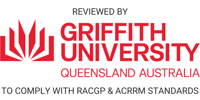
Don't see your question? Explore other faqs or talk to us.
Fees will vary based on the program and study option selected (fully online vs online + optional practical workshop). Payments can be made upfront or in monthly instalments. Special rates and various payment options are available. GP registrars and doctors in training enjoy a scholarship of up to $500. Talk to us to learn more.
Completion of any HealthCert course or attendance at an event will enable you to access the HealthCert Alumni Program which includes:
HealthCert Education is pleased to issue digital credentials for alumni. Digital credentials are a permanent online record of your successful completion of a HealthCert course and are issued to all course participants in addition to PDF certificates. If you are based in Australia, you also have the option to order a hard copy of your digital certificate for a small additional fee.
The recommended study duration of this certificate course is 112.5 hours, which includes study of the pre-course activities and readings, online lectures, live tutorials, and online assessment. This self-paced course offers the flexibility of 100% online study in your own time, at your own pace, in your own home or office, with no mandatory face-to-face requirements. You are not required to be online at specific times but can view and replay video lectures at your convenience.
All HealthCert courses meet World Federation of Medical Education standards. This certificate course qualifies for CPD hours from the Royal Australian College of General Practitioners (RACGP) and the Australian College of Rural and Remote Medicine (ACRRM) in Australia. It is recognised by the Royal New Zealand College of General Practitioners (RNZCGP) in New Zealand. It is recognised by the Hong Kong College of Family Physicians (HKCFP) in China. It is a self-submitted activity in Dubai and the United Kingdom. It is a self-submitted activity through the College of Family Physicians in Canada. If you live or work outside one of the above-mentioned countries, please contact us on admin@healthcert.com to discuss whether this course can be recognised in your country.
Want to stay up-to-date with the latest case studies, podcasts, free video tutorials and medical research articles pertinent to primary care?
Our Education Advisors can assist you with any queries and tailor our education pathway to suit your current expertise, interests and career goals.